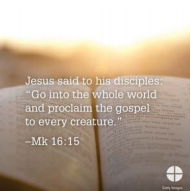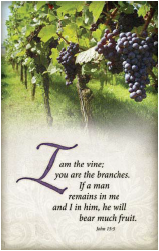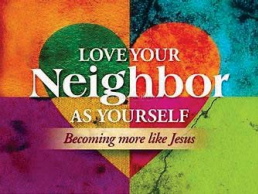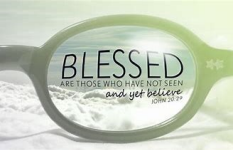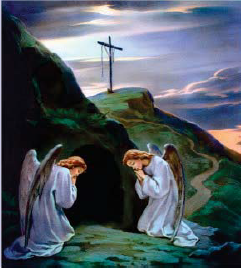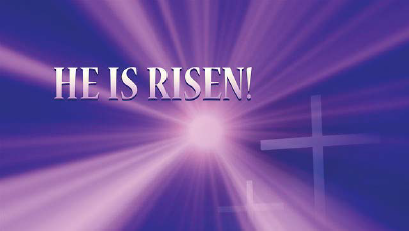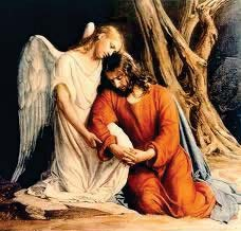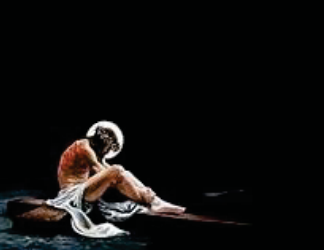We Need a Lawyer !
https://stmarystcatherine.org/wp-content/themes/osmosis/images/empty/thumbnail.jpg 150 150 Charlestown Catholic Collaborative Charlestown Catholic Collaborative https://stmarystcatherine.org/wp-content/themes/osmosis/images/empty/thumbnail.jpgThere are all kinds of lawyer stories and jokes and a lot of them are good. Some of them use different words to describe a lawyer like “mouthpiece”, “counselor”, “defender” and “advocate”. We all know that if we are in trouble and if we need some special help with a problem, we want a good lawyer – someone who will take our side and advise us about how to get through a tough time; someone who will stick up for us in a fight and help us win a just, fair and peaceful solution to our problems.
In the last days of Jesus’ journey on earth, He explained that He had to leave and he would send to us an advocate, in fact a lawyer. This advocate would explain all that Jesus had done and taught and further, would be like Jesus’ mouthpiece for us. Jesus promised that this Paraclete would never leave us alone and through this Spirit, who would have incredible power, we would find the strength to accomplish all kinds of things in the name of Jesus. The Holy Spirit is this Advocate and special envoy.
This is Pentecost Sunday. This is the feast of the Holy Spirit. This is the day when Christians everywhere celebrate the arrival of the One who has been sent from the Father and the Son and Who represents them, and in fact is united
with them to form One God. Our God is a Triune God: Father and Son and Holy Spirit. And it is the Spirit who remains with the Church and with you and me. It is the Spirit whom we receive at Baptism and the full gifts of this Spirit that we receive at Confirmation. It is the Spirit who animates us, guides us and inspires us. The very word INSPIRATION, means, of course, filled with the Spirit.
Well, we need a good lawyer, not only right here in Charlestown and Boston, but across the United States and throughout our world. Not just an average lawyer – you know the kind they call an “ambulance chaser” on TV. We
need one of those really committed, honorable, wise, self-assured, experienced, compassionate, articulate, and persuasive lawyers. Fact is, we need the Holy Spirit – no one else will do!
As you know, there are so many challenges facing the Church and society, both local and global, that I simply do not have a clue as to how we are going to find good, fair, honest and equitable solutions that can address all that needs to
be accomplished. There is anger, hurt, sadness and disappointment out there. There is violence, oppression, greed and injustice. There is no small measure of righteousness, selfishness, arrogance, and pride. And, there is indifference, apathy, and ignorance, which may be the most toxic of all. Human beings alone, whether lay, religious, clerical or otherwise cannot solve these complex challenges. And while I have a joyful confidence that Pope Francis holds the keys to some of what is needed, it is definitely a job for the Holy Spirit.
So what can we do? I firmly believe that if this weekend and going forward, each and every one who believes, implores the Holy Spirit to transform our hearts and every heart disposed to fueling the problems that exist, we will be on our way to mending our brokenness. This Spirit of God can and will come and enlighten the hearts and minds of this local Church and of all people, thereby guiding us out of the destructive behaviors and patterns that afflict our community and our world.
If you believe this, and I believe this, and we all believe this, and pray for this gift – Look Out! Be prepared to receive the gift, and the surprises and joy to follow.
Fr. Ronan
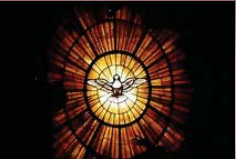
Pentecost Sunday
May 22/23, 2021
Today we celebrate the gift of the Holy Spirit, the birth of the Church and the beginning of its mission in the world. Pentecost Sunday reminds us that our lives are filled with the Holy Spirit and that God has accomplished creative things in us through this gift.
We have been entrusted with this great gift of the Holy Spirit. This great gift empowers us to be bold proclaimers of the Gospel in word and deed. It urges us to speak truth to power. It encourages us to use words and exhortations and even arguments that are meant to heal, show care and compassion and to reconcile.
Now is a good time to ask: Are we being good stewards of this gift of the Holy Spirit?
What creative things have we done to glorify God’s accomplishments in us?

